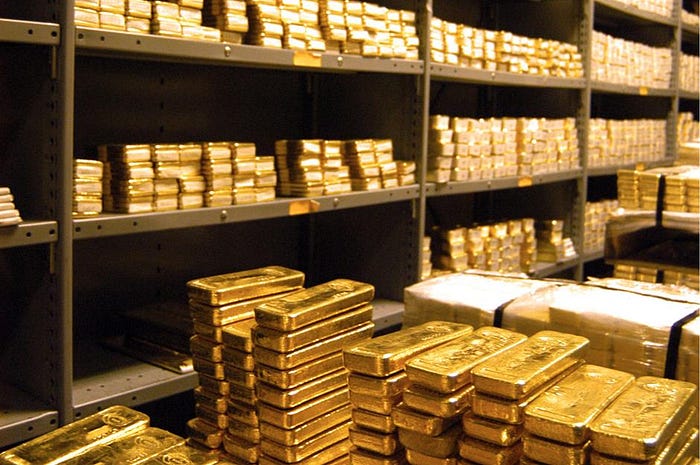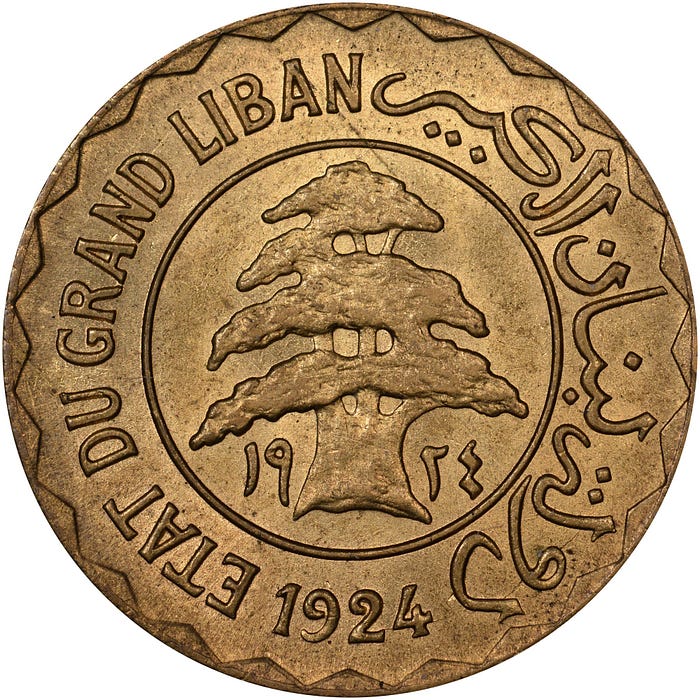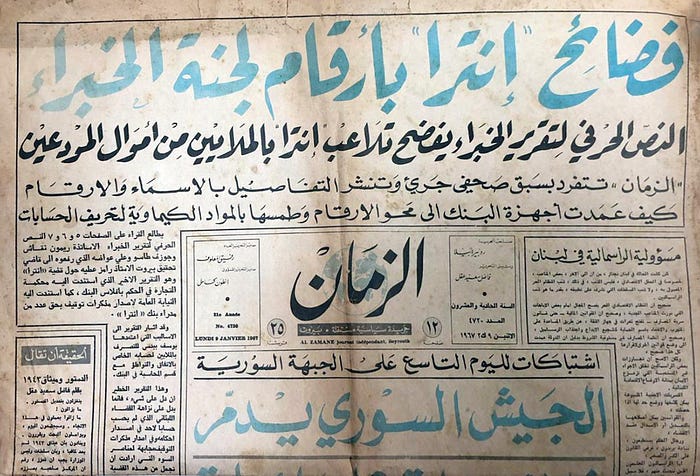The Story of Lebanon’s Gold

Prior to the great war of 1914 and before the declaration of Greater Lebanon, the currency used in Mount Lebanon Mutasarrifate and the Beirut and Syria Vilayet was the Ottoman Lira.
In 1918, following the fall of the Ottoman Empire, the Egyptian pound was used for a short time but was quickly replaced by the newly established Syrian Pound. The French authorities who had a mandate on Lebanon and Syria set the value of the Syrian pound at 20 French Francs. The first Lebanese currency was issued in 1924 but it wasn’t until 1939 that the Lebanese currency was officially separated from the Syrian currency.

Few years following its independence, in 1948, Lebanon made its first gold acquisition of 1.5 Tons. But the biggest quantities were purchased in the late 60s and early 70s. On October 14 1966, Lebanon’s Intra-Bank stopped making payments to its clients following a big run on the bank. Intra was by far the biggest piece of the Lebanese banking sector. Many questioned Lebanon’s Central Bank’s (BdL) nonintervention to provide liquidity to Intra during the bank run. The fall of Intra-Bank was a huge blow to Lebanon’s banking sector and despite the multiple new banking regulations, the faith in the sector didn’t recover to the pre-Intra levels.

In 1968, Elias Sarkis was appointed governor of BdL. Sarkis made the wise decision to increase BdL’s gold reserves. Between the late 60s and early 70s, Sarkis had purchased the big bulk of Lebanon’s gold. The reserves are estimated at 286.6 Tons which is equivalent to a 2m x 2.5m bathroom filled with gold. This today is valued at around $17.5B US dollars.
During the civil war in the early 80s, there were fears that one of the militias in the vicinity of the Central Bank would loot the gold. It was decided that a big chunk would be shipped and stored in the US. Today, it is estimated that 2/3 of Lebanon’s gold is stored in Fort Knox and New York. The only person who has jurisdiction to repatriate the gold is BdL’s governor.
On 24 September 1986, during Amine Gemayel’s mandate the Lebanese currency was devaluing rapidly. Many feared that the gold would be sold in the pretense of slowing or stopping the currency crisis. It was decided that legislation should make it hard to sell the gold. On September 24th, law 42/86 was passed prohibiting the sale of gold reserves except through a legislative text by the parliament.
There are two schools of thought regarding the accumulation of gold reserves. The first argues that the purchasing power of a Roman soldier’s gold salary is somewhat equivalent to that of a US army soldier today. So gold holds its value very well on the long-run despite short-term fluctuations. This makes it a great asset for wealth storage. The second school of thought argues that you can own a huge block of gold. You will come everyday and caress it but it will not produce anything for you. It will always remain a huge block of gold. So it does not contribute to wealth creation.
Today, with the increasing debt in the world, central banks’ demand for gold has been increasing. Especially central banks in emerging markets. Governments are feeling the need to cushion themselves in dollarized economies and buying gold is a way to do so. China & Russia in particular have been continuously increasing their reserves. In 2000 China & Russia had respectively close to 1000 Tons and 700 Tons, in 2019 they increased their reserves to 1853 and 2113 Tons.
Lebanon’s gold is roughly equivalent to 30% of its pre-crisis GDP. It is the 17th largest gold reserves holder in the world. Most importantly it is the second per-capita gold reserves holder after Switzerland. If Lebanon’s gold reserves are distributed on the population, each citizen would hold 69 grams which is roughly equal to $4200.
Today there are discussions about liquidating part of the gold to be used to slow the economic crisis in Lebanon. Doing so would constitute a move that would dispossess future generations from one of Lebanon’s biggest assets. The risk is that the money generated from the gold sale would be embezzled by the same people who are responsible for Lebanon’s crisis. Lebanon’s population has a duty to protect this asset. Their children deserve it.
